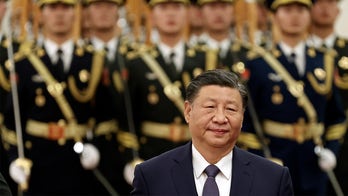An exiled Iranian resistance group has unveiled irrefutable evidence linking top Iranian officials to the illicit supply of weaponry and training to the Houthis, further fueling their attacks on ships in the Red Sea and the Gulf of Aden.

An exiled Iranian resistance group, the People's Mojahedin Organization of Iran (PMOI/MEK), has exposed damning evidence of the Iranian regime's direct involvement in supporting the Houthi rebels in Yemen. This support enables the Houthis to conduct attacks on ships traversing the Red Sea and the Gulf of Aden, threatening international shipping lanes.
The evidence provided by the PMOI/MEK reveals a network of methods and locations used by the Iranian Revolutionary Guard Corps-Qods Force (IRGC-QF) to supply the Houthis with weapons, including drones, cruise missiles, ballistic missiles, anti-ship mines, radar equipment, and communication systems.

The IRGC-QF utilizes a port east of the city of Jask to ship military supplies to the Houthis, according to the PMOI/MEK. The weapons are often concealed inside fenders, large shock absorbers used to prevent ships from colliding. On other occasions, the fenders are attached to Iranian barges or submerged and retrieved by a secondary ship using GPS.
The MEK also alleges that the IRGC trains the Houthis to utilize high-tech weaponry and has transformed them from a "ragtag force" into a "conventional military force." IRGC personnel are reported to be "serving side by side" with the Houthis inside Yemen, providing target information and advice.

The echelons of Iranian leadership involved in maintaining Iranian-Houthi relations include senior IRGC-QF commander Brig. Gen. Abdul Reza Shahlai, also known as "Haj Yusuf," Brig. Gen. Ismail Qaani, Brig. Gen. Mohammad Reza Fallahzadeh, also known as "Abu Baqer," and Abu Fatemeh. The MEK also states that the Iranian Foreign Ministry reviews and analyzes the effects of Houthi attacks, and Supreme Leader Ali Khamenei ultimately approves decisions regarding Yemeni intervention and escalation.
The United States and other Western powers have imposed sanctions on Iran in an effort to curb its support for terrorism. However, experts warn that the Islamic Republic has a well-established system capable of "scaling up material support over time" despite these measures.

The Iranian regime's support for the Houthis is a key component of its strategy to destabilize the Middle East and harm Israel. By providing the Houthis with advanced weaponry, Iran creates a vector of pressure against Israel, forcing it to expand its missile defense systems and reducing its political space for military operations against Hamas.
The world is likely to see more weapons proliferation across the region, not less, as Iran's strategy continues to unfold. International condemnation, sanctions, and diplomatic efforts are urgently needed to address the threat posed by Iran's illicit support for the Houthis and its destabilizing influence in the Middle East.

The Associated Press contributed to this report.














